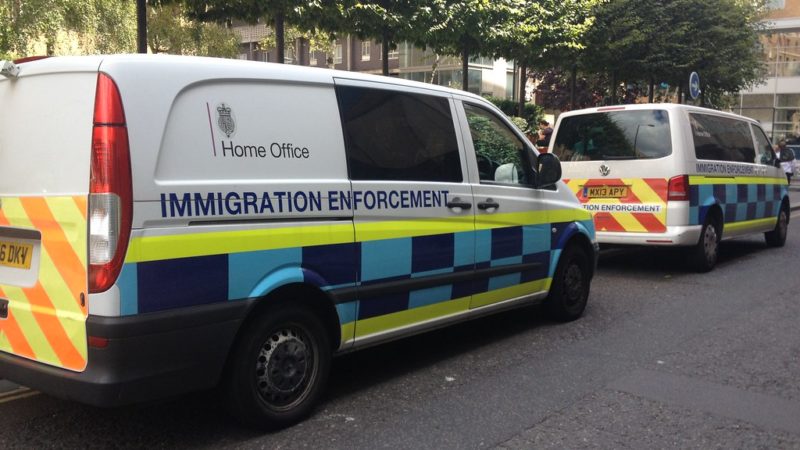
This week thousands of people will be heading to Brighton for Labour’s annual conference. Delegates will be asked to consider and vote on the party’s policies on 20 different topics. Climate change and Brexit are set to dominate the headlines, with dozens of local parties submitting proposals on the themes. It is harder to guess what other areas will make the agenda. Many activists are hoping that among them will be immigration.
Seven Constituency Labour Parties submitted a motion promoted by Momentum, calling for the abolition of immigration detention. A further five sent in a proposal backed by the Labour Campaign for Free Movement, which would also commit Labour to closing all detention centres, alongside a broader series of demands around defending freedom of movement and extending migrants’ rights. Due to the significant overlap between the two motions, it would be logical for delegates to be able to debate them together – much like, for example, proposals around private schools, academies and the curriculum have all been bundled together under the topic of “schools.” However, the Conference Arrangements Committee (CAC) – the Labour Party body responsible for such decisions – has instead separated them under the headings of “immigration” and “immigration detention”. Despite a number of complaints being submitted from delegates holding both motion texts, and despite an intervention from Clive Lewis, the CAC upheld its decision. This makes it less likely that either of them will go to a vote at conference.
A democratic debate within Labour on our immigration policy is long overdue. It has not yet happened under Jeremy Corbyn and the party’s instinct often seems to be to change the topic, rather than address the issue head-on. Freedom of movement was for a long time the elephant in the room in the discussions around Labour’s Brexit position. When our 2017 manifesto said that free movement with Europe would end with Brexit, it sounded like a statement of fact, not a political decision made by the leadership. As our policy was moving towards a softer Brexit – a customs union and a “close alignment” with the single market – any mention of freedom of movement was conspicuous in its absence. When Diane Abbott gave a speech last September outlining Labour’s plan for a “simpler, fairer immigration system”, she made it clear that questions related to Brexit negotiations would not be addressed – including the party’s stance on European immigration. Now, when Labour is openly attacking a hard Brexit and demanding a fresh referendum, migrants’ rights are still rarely brought up as an argument.
Labour’s confusion over the issue became clear, and embarrassingly so, in January when Labour MPs were told to abstain on the Tories’ Immigration Bill. The decision was met with backlash from Labour activists and subsequently reversed and turned into a one-line whip against. For many of Corbyn’s supporters, this reluctance to take a clear position came as a surprise. This was not the principled, straight-talking politics we were promised.
Freedom of movement with Europe is not the only question that Labour needs to reach a conclusion on. Since Diane Abbott announced the policy to close two most notorious detention centres – Yarl’s Wood and Brook House – more and more campaigners have been calling for the party to go a step further and pledge to phase out the detention estate entirely. Labour’s 2017 manifesto pledge to keep ‘no recourse to public funds’ policies, which leave many migrants with no access to the welfare state, also appears at odds with our commitment to ending homelessness and destitution. Several Labour MPs, including Lloyd Russell-Moyle and David Lammy, have also endorsed the Let Us Vote campaign, calling for migrants to be given voting rights. Groups such as the Labour Campaign for Free Movement argue that Labour’s response to the brutality of the Tory Hostile Environment regime should be a truly radical approach to immigration – not just a slightly more humane one.
Twice already, Labour members attempted to bring up the subject at Labour conference, with no success. In 2017, Momentum controversially whipped supportive delegates, who comprised the majority of the room, not to prioritise a debate on Brexit – and motions on immigration were filed under that category. In 2018, the infamous fudge composite on Brexit included positive rhetoric about migrants but not an explicit commitment to defending freedom of movement. All policy proposals submitted on the topic of immigration were cut out.
This year, let’s not duck this debate again. When the flaws in the government’s settled status scheme for EU nationals are becoming more and more obvious, when large numbers of migrants are struggling to prove their right to stay in a country they’ve called home even for decades, Labour’s alternative must be clear. We either stand for building more borders, if more gradually and carefully than the Tories would, or we defend free movement and strive to level up migrants’ rights. I hope the latter is the answer.
As Clive Lewis said, “migrants’ rights are not a side issue – they are a huge and central part of what Labour stands for”. Immigrants are a part of the working class and the labour movement just as much as British workers are. If we’re serious about the socialist, anti-racist values we claim, we cannot brush this issue aside. That’s why we should encourage our delegates to prioritise both motions on immigration – so that members can finally have a say and make sure our party comes out strongly in defence of migrants.




More from LabourList
‘Tackling poverty should be the legacy of Keir Starmer’s government’
‘The High Court judgment brings more uncertainty for the trans community’
‘There are good and bad businesses. Labour needs to be able to explain the difference’